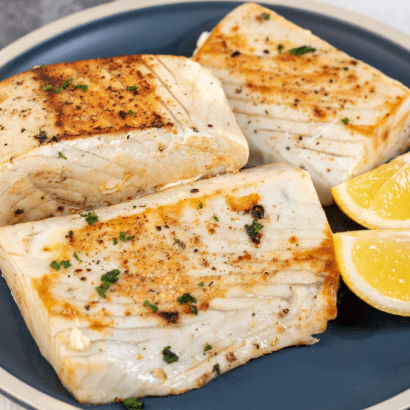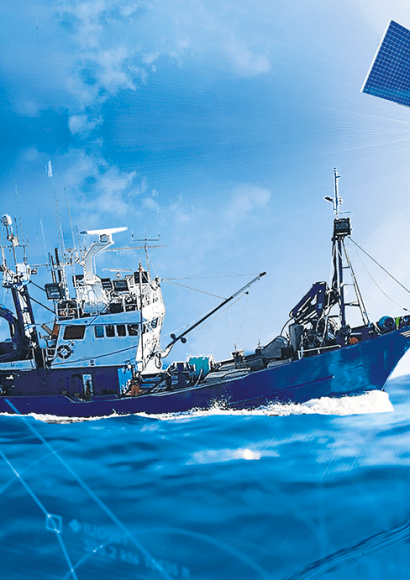
The fishing industry, a cornerstone of global food security and economic livelihoods, is continuously evolving in response to various factors. As we navigate through the complexities of modern times, it becomes imperative to delve into the currents shaping this vital sector. In this exploration of Current Fishing Industry Trends, we embark on a journey to understand the shifts, innovations, and challenges influencing fishermen, seafood consumers, and the marine environment. From sustainability initiatives to technological advancements, we aim to uncover the threads weaving through the fabric of contemporary fishing practices. Join us as we cast our nets wide and delve deeper into the ever-changing landscape of the fishing industry.
Contents
Emerging Trends in the Fishing Industry.🐟
The fishing industry is undergoing significant changes that affect fishermen, consumers, and the environment. In this section, we will explore the most relevant Fishing industry trends shaping the future of fishing.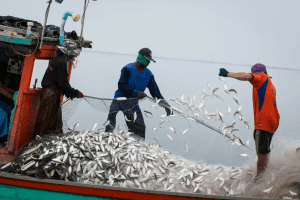
Sustainability:
Sustainability has become a central issue in the fishing industry. Fishermen and companies are adopting sustainable practices to ensure that fishery resources are conserved for future generations. From implementing catch quotas to adopting selective fishing methods, steps are being taken to protect marine biodiversity and prevent overexploitation of species.
Technology and Innovation:
Technology is revolutionizing the way fishing is conducted. From the use of satellite tracking devices to the development of more efficient and selective fishing gear, fishermen are leveraging the latest innovations to improve their productivity and reduce their environmental impact. Additionally, innovation in aquaculture is enabling more efficient and sustainable fish farming.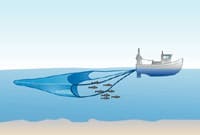
Responsible Consumption:
Consumers are increasingly concerned about the origin of their seafood products and their impact on the environment. As a result, there has been a rise in demand for certified sustainable fish and responsible fishing methods. Organizations and certifications such as the Marine Stewardship Council (MSC) and the Aquaculture Stewardship Council (ASC) play a crucial role in promoting responsible consumption.
Climate Change:
Climate change is profoundly affecting marine ecosystems and, therefore, the fishing industry. Rising ocean temperatures, water acidification, and changes in species migration patterns are challenging the sustainability of fishing. Fishermen and governments are working together to develop adaptation and mitigation strategies to address these challenges.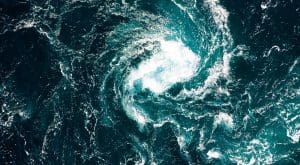
Regulations and Policies:
Government regulations and policies play a fundamental role in fisheries management and the protection of marine resources. From the implementation of marine protected areas to the adoption of transparent labeling standards, governments are working to ensure that fishing is conducted responsibly and sustainably.
Explore Delicious Recipes with Peto Fish.
Looking to add a flavorful twist to your culinary repertoire? Dive into the world of exquisite gastronomy with our collection of delectable recipes featuring Peto fish. Whether you’re a seafood enthusiast or a culinary novice, these recipes offer a delightful fusion of flavors and textures that are sure to tantalize your taste buds. From savory Peto fish tacos to succulent grilled Peto fillets, each dish is crafted to perfection, showcasing the versatility and richness of this prized ingredient. Embark on a culinary adventure and discover the culinary magic that awaits with these 5 recipes with Peto fish.
The Future of the Fishing Industry.🐟
As we peer into the crystal ball of the fishing industry, it’s evident that change is on the horizon. Let’s explore what lies ahead and how these developments could shape the future of fishing for generations to come.
Potential Influences on the Fishing Industry:
The winds of change are blowing, and with them come a host of potential influences that could reshape the fishing industry landscape. From advancements in technology to shifting consumer preferences, these factors have the power to steer the course of the industry in new and unexpected directions.
-
- Sustainable Practices: With growing concerns about environmental sustainability, the fishing industry is poised to embrace more eco-friendly practices. This could mean greater emphasis on responsible fishing methods and conservation efforts to ensure the long-term health of marine ecosystems.
- Technological Innovations: The rise of technology is revolutionizing every aspect of the fishing process, from catching to processing and distribution. Remote working canary islands, such as the implementation of remote monitoring systems and automated fishing equipment, could streamline operations and improve efficiency.
- Changing Markets: As global tastes evolve, so too must the fishing industry. Demand for certain species may fluctuate, leading to shifts in fishing practices and supply chains. Additionally, the rise of alternative protein sources and plant-based seafood substitutes could reshape the market landscape.
Opportunities and Challenges:
With change comes both opportunities and challenges for the fishing industry. Let’s take a closer look at what lies on the horizon.
-
- Opportunities: There are exciting opportunities on the horizon for fishermen and seafood businesses. Embracing sustainable practices can open doors to new markets and partnerships, while technological advancements offer the potential to increase productivity and reduce costs. Additionally, the growing focus on traceability and transparency presents an opportunity for businesses to build trust with consumers.
- Challenges: However, the road ahead is not without its obstacles. Adapting to new regulations and sustainability standards can be challenging for some players in the industry. Economic pressures, competition from alternative protein sources, and the impacts of climate change are also significant challenges that must be navigated.
Exploring Key Questions in the Fishing Industry.🐟
What are the current trends in the fishing industry?
Current trends in the fishing industry are characterized by a growing focus on sustainability, technology, responsible consumption, and adaptation to climate change. Fishermen and companies are adopting sustainable practices, such as selective fishing and quota management, to ensure the long-term health of fishery resources. Additionally, technology is transforming how fishing is conducted, from remote monitoring to the implementation of tracking and traceability systems. Climate change is also impacting the fishing industry, with changes in species migration patterns and water acidification. In summary, current trends reflect a focus on environmental responsibility and adaptation to a changing environment.
How is climate change affecting the fishing industry?
Climate change is having a significant impact on the fishing industry worldwide. Rising ocean temperatures are affecting marine species habitats, which in turn alters migration patterns and food availability. Water acidification can also have adverse effects on certain species, such as mollusks and corals, which are critical to marine ecosystem health. Additionally, extreme weather events like hurricanes and storms can damage fishing infrastructure and jeopardize fishermen’s safety at sea. In summary, climate change presents significant challenges for the fishing industry, requiring adaptation and mitigation measures.
What measures are being taken to promote sustainability in fishing?
Various measures are being implemented to promote sustainability in fishing and ensure the long-term health of fishery resources. These include implementing catch quotas, creating marine protected areas, and promoting selective and low-impact fishing practices. Additionally, sustainability standards and certifications, such as those from the Marine Stewardship Council (MSC) and the Aquaculture Stewardship Council (ASC), are being adopted to help consumers make informed decisions about their purchasing choices. Collaboration among governments, international organizations, industry, and conservation groups is also crucial to addressing the challenges of sustainability in fishing.

